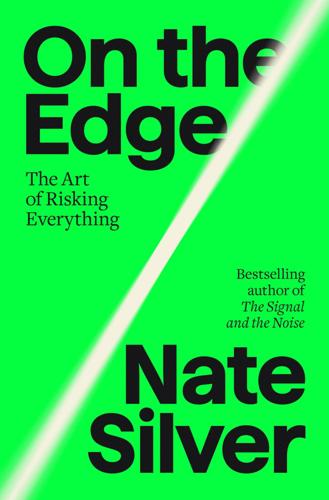
On the Edge: The Art of Risking Everything
by
Nate Silver
Published 12 Aug 2024
Another great-grandfather, Ferdinand Thrun, was a notorious arsonist who came up with such innovative ways of committing insurance fraud that there literally weren’t laws to charge him with. Ferdinand would have run a pretty good bluff. And I’d been a professional poker player for three years between 2004 and 2007, during the so-called Poker Boom. The Poker Boom began because of the increasing availability of online poker and because of Chris Moneymaker, an accountant from Nashville who won an online qualifying tournament for a seat at the $10,000 Main Event at the 2003 World Series of Poker and then parlayed that into winning the Main Event for $2.5 million.
…
However, in this book I use plurality in the sense of pluralism, i.e., employing multiple approaches to a problem instead of one. Plus EV: Having a positive expected value. Pocket pair: In poker, two hole cards of the same rank, e.g. 7♦7♣ is “pocket 7s”; these are generally strong hands. Poker Boom: The period beginning in 2003 of rapid expansion in poker because of the increasing availability of online games and Chris Moneymaker’s win at the 2003 Main Event. The Poker Boom ended between 2006 and 2008 because of increasingly aggressive enforcement actions against online poker. Point spread: A sports bet in which you predict the margin of victory. A positive number (Chiefs +3) means that you win the bet if the Chiefs either win the game outright or lose by fewer than 3 points; a negative number (Chiefs -3) means that you lay points and the Chiefs must win by at least that amount.
…
Needless to say, this wasn’t sustainable, and—making considerably more money as a poker player than as a consultant—I quit my corporate job within about six months to play poker and work for the baseball statistics startup Baseball Prospectus. It was a good living for a couple of years—but like most edges in gambling, it wouldn’t last. Some of this was the natural evolution of the game: the Poker Boom sputtered into more of a poker plateau as losing players either went broke, quit, or got better, removing one sucker from the table at a time. But it was also partly the doing of the U.S. Congress. In late 2006, the GOP-led Congress, hungry for a victory with “moral majority” voters ahead of the midterms as Republican congressman Mark Foley resigned from office for having sent sexually explicit messages to underage male pages, passed a bill called the Unlawful Internet Gambling Enforcement Act (UIGEA).
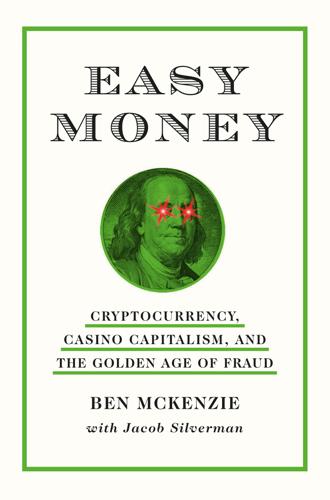
Easy Money: Cryptocurrency, Casino Capitalism, and the Golden Age of Fraud
by
Ben McKenzie
and
Jacob Silverman
Published 17 Jul 2023
The online poker boom was on. Online poker grew from almost nothing into a multibillion-dollar business in less than a decade. A few online poker rooms in the late nineties and early aughts swelled to more than 500 by 2010. Poker tournaments were now much-hyped televised events, with online sites driving much of the advertising and the winning players becoming celebrities. The star players would often then sign lucrative endorsement deals with those sites, drawing in even more average Joes. The Unlawful Internet Gambling Enforcement Act of 2006 laid the groundwork for the demise of the poker boom. Domestically, it meant that the people behind those websites were engaged in illegal activity and could be arrested.
…
And in these moments of truth, these men and women, these mere mortals, just like you and me, as they peer over the edge, they calm their minds and steel their nerves, with four simple words that have been whispered by the intrepid since the time of the Romans. Fortune favors the brave. Goddammit, I thought. Goddammit, Matt Damon, not you! I’ve seen Good Will Hunting dozens of times. He was great in the Oceans movies. Rounders was maybe the only good thing to come out of the mid-2000s poker boom. He even made Stuck on You mildly entertaining. Why did he need to promote an exchange for unregistered, unlicensed securities on national TV when all any of us wanted to do was watch baseball? And why was he effectively shaming dudes for being wimps if they weren’t man enough to gamble on crypto?
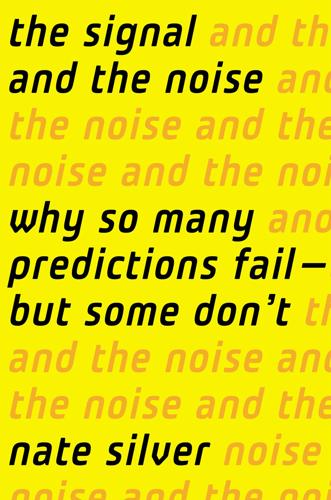
The Signal and the Noise: Why So Many Predictions Fail-But Some Don't
by
Nate Silver
Published 31 Aug 2012
Nobody has yet designed, and perhaps no one ever will, a computer that thinks like a human being.49 But computers are themselves a reflection of human progress and human ingenuity: it is not really “artificial” intelligence if a human designed the artifice. 10 THE POKER BUBBLE The year 2003 was the start of the “poker boom,” a sort of bubble economy in which the number of new and inexperienced players was growing exponentially and even a modicum of poker skill could be parlayed into large profits. The phenomenon had two immediate and related causes. One was the 2003 World Series of Poker in Las Vegas, which was won by a twenty-seven-year-old amateur, a Nashville accountant with the auspicious name of Chris Moneymaker.
…
My years in the game taught me a great deal about the role that chance plays in our lives and the delusions it can produce when we seek to understand the world and predict its course. FIGURE 10-1: WORLD SERIES OF POKER MAIN EVENT PARTICIPANTS, 1970–2006 The Start of a Poker Dream The other catalyst of the poker boom was the Internet. Internet poker had existed in some form since 1998, but it began to go mainstream in 2003 as companies like Party Poker and PokerStars became more aggressive about marketing their way through the legal quagmire of Internet gambling. Players from all around the world flocked to the online games, overcoming their reservations about the security and legality of the virtual cardrooms.
…
The Prediction Learning Curve The difference between Dwan and me is that, while he is willing to take on almost literally any other player for any stakes at any time, I was merely in the upper middle class of poker players and needed to be in a game with some bad ones to be a favorite to make money. Fortunately, there were plenty of these bad players—what poker players call fish—during the poker boom years. There is a learning curve that applies to poker and to most other tasks that involve some type of prediction. The key thing about a learning curve is that it really is a curve: the progress we make at performing the task is not linear. Instead, it usually looks something like this (figure 10-6)—what I call the Pareto Principle of Prediction.
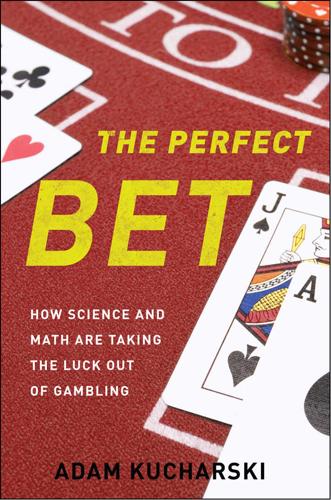
The Perfect Bet: How Science and Math Are Taking the Luck Out of Gambling
by
Adam Kucharski
Published 23 Feb 2016
Beyond the casino floor, people have even scooped lottery jackpots using a mix of math and manpower. The debate over whether winning depends on luck or skill is now spreading to other games. It may even determine the fate of the once lucrative American poker industry. In 2011, US authorities shut down a number of major poker websites, bringing an end to the “poker boom” that had gripped the country for the previous few years. The legislative muscle for the shake-up came from the Unlawful Internet Gambling Enforcement Act. Passed in 2006, it banned bank transfers related to games where the “opportunity to win is predominantly subject to chance.” Although the act has helped curb the spread of poker, it doesn’t cover stock trading or horseracing.
…
J., 47–48 Metropolis, Nicholas, 61, 63–64, 168–169, 180 Mezrich, Ben, 214 Michigan Lottery, 30 Midas algorithm, 87, 88, 89 Milgram, Stanley, 13 Miller, George, 179 Millman, Chad, 102 mind-set, 209 minimax approach, 145, 147–148, 155 minor sports, benefit of focusing on, 107 MIT gambling course, 213–214 MIT Sloan Sports Analytics Conference, 85, 105, 107 mixed strategies, 142–143, 147 Monte Carlo fallacy, 6, 200 Monte Carlo method, 61–62, 63, 64, 83, 178–179, 217 Morgenstern, Oskar, 139, 150, 181–182 mortgage loan crisis, 96–97 multiple regression, 49 Munchkin, Richard, 72, 214 Nadal, Rafael, 110 NASCAR, 107 Nash, John, 137, 148–149, 158 Nash equilibrium, 137–138, 148–149, 151, 154, 160, 161, 181, 183, 184, 185, 187 National Academy of Sciences, 133 Nature (journal), 48, 49, 51 NBA, 85 near-equilibrium strategies, 152–153, 153–154 neural networks, 173–174 new data, testing strategies against, 53, 54 New England Patriots, 88 new games, advantages in, 72–73 New York Stock Exchange, 117 New York Times (newspaper), 101, 172, 177, 178, 180 New Yorker (magazine), 143 newsfeeds, 120, 122, 133–134 NFL, 103, 209 NHL, 85, 205 no-limit poker, 189, 195 “nonlinear” trajectory, 12 Oakland A’s, 209 Occam’s razor, 53 Oller, Joseph, 44 online betting, 90 online blackjack, 71–73 online gambling, advantages of, 72–73, 90, 107, 132 online poker sites, 192–193, 194, 195, 198, 200 online security, 195 Onside Analysis, 78, 105 opponent modeling, 163, 181, 184, 187 optimal strategies in bankroll management, 65–67 in blackjack, 36–37, 40, 72 in checkers, 158 in chess, 161, 202 in get-so-many-in-a row-style games, 158–159 in poker, 143–144, 145, 147, 149, 151, 152, 153, 160, 161, 177, 181, 184, 188, 208 in rock-paper-scissors, 143, 178, 180 in soccer, 146, 147 and stock/financial markets, 161 See also game theory; perfect strategies “Optimum Strategy in Blackjack, The” (Baldwin, Cantey, Maisel, and McDermott), 37 order-routing algorithms, 115 Osipau, Andrei, 72 overestimating, 98 overlays bias, 56 oversimplification, 212 Packard, Norman, 14, 20, 120 Palacios-Heurta, Ignacio, 146, 147 panic, 99, 133 pari-mutuel betting system, 43–45, 66, 114 Pascal, Blaise, 10 Pasteur, Louis, 202 patience and ingenuity, 218 PDO statistic, 205 Pearson, Karl, 4–7, 15, 24, 46–47, 48–49, 54, 61, 217 Pentagon, 92 perfect bet, story of the, 218 perfect strategies, 37, 53, 146, 149, 154, 159, 160, 168, 187 See also optimal strategies performance measurement, 85, 102–105, 208–209 physical bias, 7, 8, 21 Picasso, Pablo, 209–210 Pinnacle Sports, 91–92, 93 Poincare, Henri, 2–3, 8–9, 9–10, 11, 12, 21, 22, 40, 41, 46, 62, 63, 127, 217 Poisson, Siméon, 75 Poisson process, 75–76, 78 poker abstractions and, 212 analysis of the endgame in, 143 applying game theory to, 141, 148, 181, 183 bankroll management in, 144–145 basic options in, 138–139, 142 behaviors in, 191–192 coalitions in, 181–183 combined approach to, 208 heads-up, 172, 186, 188, 195 incomplete information in, 168 in Internet chat rooms, 142 as less vulnerable to brute force methods, 171 limited-stakes, 172, 177, 185, 187, 189 luck versus skill in, 198–200, 201, 215 more options in, complexity of, 142 near-equilibrium strategy for, 152–153, 153–154 no-limit, 189, 195 optimal strategy in, 143–144, 145, 147, 149, 151, 152, 153, 160, 161, 177, 181, 184, 188, 208 potential for errors in, 160 prediction in, 163 randomness in, 152, 156 robot players in, 135–136, 149–150, 151, 153, 154, 161, 163, 167–168, 172, 173, 175, 176–177, 182, 184, 185–189, 190, 192–196, 212, 217 scientific idea inspired by, 217 Texas hold’em, 140–141, 151–152, 172, 177, 185–186, 187–188 university course studying, 214–215 well-known research into, 169 World Series, 140–141 as a zero-sum game, 145, 181 poker boom, 198 poker face, optimal, 192 poker industry, 198 poker websites. See online poker sites Polaris poker bot, 185–186 Polaris 2.0, 186–187 policy analysis market, 92 Poots, Brendan, 97, 98, 99, 100, 104 popularity, randomness of, 203–204 populations, 125–129 Power Peg program, 118 Powerball, 29 predator-prey relationships, 129–130 Prediction Company, 120, 131 predictions baseball and, 87, 88 basketball and, 82, 85–86 blackjack and, 40, 42 bookmakers and, 91–92, 93 checkers and, 156, 157 comparing, against new data, 53, 54 computerized, 2, 13, 14, 15–20, 22, 46, 51, 61, 68, 80–82, 87, 88, 89–90, 97, 105, 156, 157, 217 degree of ignorance and, 3, 8 external disruptions as a factor in, 19–20 focus in making, 205–206 football and, 79, 82, 87, 88 golf and, 84–85 horse racing and, 46, 49–50, 51–54, 55–58, 64, 68, 69, 74, 206, 207, 216, 218 hydrogen bomb building and, 59, 61 opponent behavior and the need for, 163 poker and, 163 problem with explaining, 206–207 roulette and, 2, 3–4, 5–8, 10–11, 12–13, 14, 15–20, 21–22, 124, 127, 162, 210–211, 218 soccer and, 73–79, 82, 86, 90, 97–98, 98–99, 218 weather and, 9, 13, 53 of worst-case scenarios, 74 Preis, Tobias, 96 Premium Bonds, 204 Priomha Capital, 97, 99, 100, 101 prisoner’s dilemma, 137–138, 160 probability basic, successful strategies go beyond, 208 in blackjack, 36 of default on a home loan, 96 different conclusions about, 212 of ecosystem survival, 128 in horse racing, 45, 46, 51, 56–57, 58, 66, 206, 207 in lotteries, 32, 98 in poker, 138, 152, 171, 208 in rock-paper-scissors, 143 in roulette, 6, 17–18, 98 in soccer, 75, 146, 147, 209 in solitaire, 60 weighing against, 216 probability theory, 73, 132, 216–217 professional sports bettors, 102 proof by contradiction, 158–159 pseudorandom numbers, 61 psychological bias, 6, 98 psychology, 171, 177, 189, 208 pure strategies, 142, 143, 147, 152 qualitative information, 105 quality measurement, 50–51, 74 quantitative information, 105 raising, 143 Random Strategies Investments, LLC, 30 randomness as an abstraction, 210–211, 212 in basketball, 85 in blackjack, 38, 40, 41, 42, 71, 212 in chess, 168, 176, 202 in coin tosses, 199 collecting data on, 4–8 controlled, 25–26, 28 in ecosystems, 128, 129 generating, in game moves, 179 in golf, 84 and the infinite monkey theorem, 156–157 logistic map and, 126 Monte Carlo method and, 61 nonrandom patterns in, 178–179 in poker, 152, 156 of popularity, 203–204 in rock-paper-scissors, 143, 178, 181 in roulette, 2, 3–4, 5–8, 9, 10–11, 12–13, 15–20, 21–22, 38, 162, 178–179, 202, 212 and uniform distribution, 41 rationality, 123–124, 160 reality, model of, 211, 212 rebates, 69 recruitment teams, 73 regression analysis, 47–49, 50, 52, 79, 106, 206 regression to mediocrity, 47, 48–49, 205 regression to the mean, 106 regret minimization, 152–154, 187–188 regulation, 91, 101, 133 Reinhart, Vincent, 133 Retail Liquidity Program, 117 risk, 32, 36, 65, 66, 78, 95, 96, 99, 102, 120, 133, 144–145, 153, 156, 171, 184, 216 Ritz Club, 1–2, 20, 21 Robinson, Michael, 97–98 robots (bots) and the ability to learn, 151, 161, 163, 173, 174, 176, 177, 187, 188, 190, 217 in backgammon, 172–173 betting exchanges and, 112–113, 116–117 as bookmakers, 130 in checkers, 155–156, 157–158, 159–160, 167, 168, 190 in chess, 166, 167, 168, 171, 176, 189, 190 cognitive, other useful applications for, 166, 188 different types of, 129–130 faulty, 116–117, 118, 119, 120 in horse racing, 115–117 hybrid, 184 in Jeopardy!
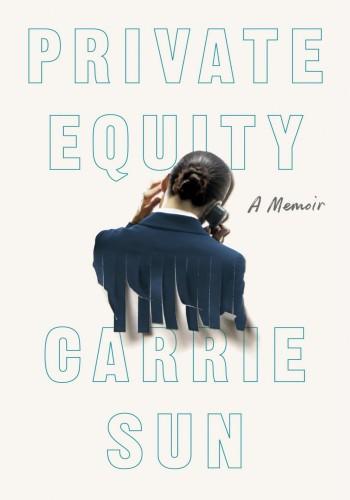
Private Equity: A Memoir
by
Carrie Sun
Published 13 Feb 2024
He had tapped my shoulder twice and said, “We must chat.” Sitting next to Brian today was David, a co-creator of the series and Brian’s longtime writing partner. Together, they had written Rounders, a cult classic, with lines like “If you can’t spot the sucker . . . then you are the sucker.” The movie came out before the poker boom of the aughts, a craze they had helped feed by giving the Hollywood treatment to the underground world of illegal high-stakes gambling. After some small talk, Brian got down to it: “We invited you here because we’re thinking of bringing a character like you onto the show. A chief of staff, right-hand-man or -woman-type character for the next season.
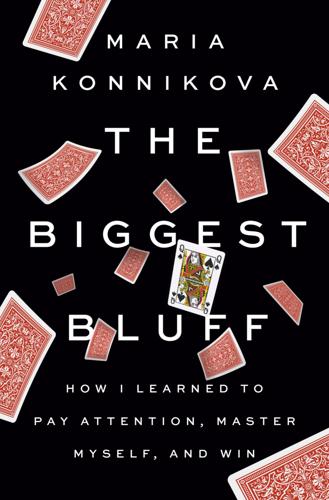
The Biggest Bluff: How I Learned to Pay Attention, Master Myself, and Win
by
Maria Konnikova
Published 22 Jun 2020
But his accomplishments include the one thing everyone covets, the title of World Series of Poker Main Event champion. He can also boast a record four Main Event final tables, including a third-place finish in the year made famous by an accountant, Chris Moneymaker, winning the top prize and starting the modern poker boom, the so-called Moneymaker effect. Finding a good mentor is crucial to learning any new skill—and one of the things the best mentors do well is know when to delegate. It’s been decades since Erik opened David Sklansky’s The Theory of Poker, the book that first propelled him into the poker world when he picked it up on a whim in a used-book shop.